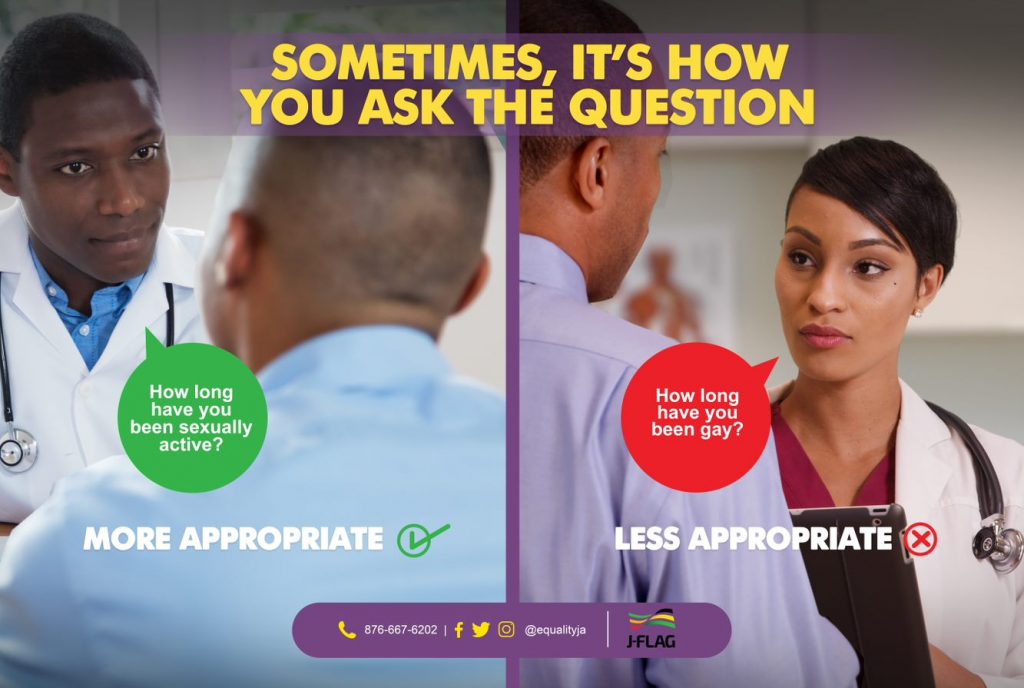The Health and Wellness portfolio has seen a shift in programmatic focus over the past year. Our successful implementation of the Public Health Worker Training Programme since 2011 has seen over six hundred (600) healthcare practitioners in Jamaica with increased capacity to treat with men who have sex with men and the wider LGBT population.
Since 2020, we have been taking a holistic approach to LGBT-related health (care) issues. This is reflected in our work around mental health and non-communicable diseases.
In 2020, Equality for All Foundation Jamaica (EFAF) conceptualised a project around, “Improving mental health services for LGBT Jamaicans.” Under the project, we commissioned a rapid assessment and a community needs assessment among two hundred and twenty (220) LGBTQ+ Jamaicans and two hundred (200) mental health practitioners. The results of this revealed that mental health issues are common among LGBT Jamaicans, but available services are not always known to the community and providers do not all possess the capacity to offer non-discriminatory and responsive services.

In response, we have developed a Community Mental Health Support Handbook for Counselling and Clinical Psychologists. Coupled with offering LGBT-specific mental health Continuing Education Units (CEUs) through a six (6) modules curriculum developed through EFAF and approved by the Council of Professions Supplementary to Medicine.
Our work under this project also involves the development of a Mental Health Guide for LGBT Jamaicans to support the work to be done under the LGBT mental health and healing justice peer support programme. At the core of this programme, we aim to empower LGBT Jamaicans with mental health literacy- including 101 knowledge of mental health issues, myths and challenges in the LGBT community and provide LGBT Jamaicans with tools and skills to offer healing justice and informed peer support.
Through grant-funding, we commissioned the first-ever LGBT-specific rapid literature review and qualitative study looking at non-communicable diseases and its disproportionate effect on the LGBT community. This represents an important research and policy gap in Jamaica as the National Strategic Action Plan for the Prevention and Control of Non-communicable Diseases (NCDS) in Jamaica, 2013 – 2018 makes no explicit references to the burden of NCDs or risk factors in the LGBT community. Additionally, the Jamaica Health and Lifestyle Survey, the main source of nationally representative data on the range of chronic illnesses, their risk factors, and biological and social correlates does not include questions related to sexual or gender identity and so the burden of NCDs among LGBT persons remain obscured and there is no data available to inform policy decisions for this segment of the Jamaican population.

Since the completion of the rapid literature review and qualitative study, we’ve made progress in presenting our findings and recommendations to Dr. Christopher Tufton, Minister of Health and Wellness, Dr. Nicola A. Skyers, Director, Disease Prevention and Control (Acting) in the Non-Communicable Disease and Injury Prevention Unit and Dr. Karen Webster-Kerr, Principal Medical Officer and National Epidemiologist in the Ministry of Health and Wellness.
Our aim is to have questions on sexual and gender identity integrated into the upcoming Jamaica Health and Lifestyle Survey, longitudinal studies, electronic health records, and other administrative data systems in Jamaica.
There is a lot of work to be done to build on the progress that has already been achieved. What is immensely clear is that the work cannot be siloed as it is all interconnected. Mental health is linked to sexual productive health and is also linked to accessing health care. Accessing health care speaks also to mental health and sexual reproductive health. To move the needle further, it will take i) a strategic and systemic approach, ii) equal micro-level and macro-level effort, iii)ongoing engagement with all stakeholders, iv) willingness to have frank and uncomfortable discussions, v) resource mobilization and private sector engagement, vi) key health communication and health promotion, and vii) creating interim spaces for LGBT persons to sustainably access different types of health care.

